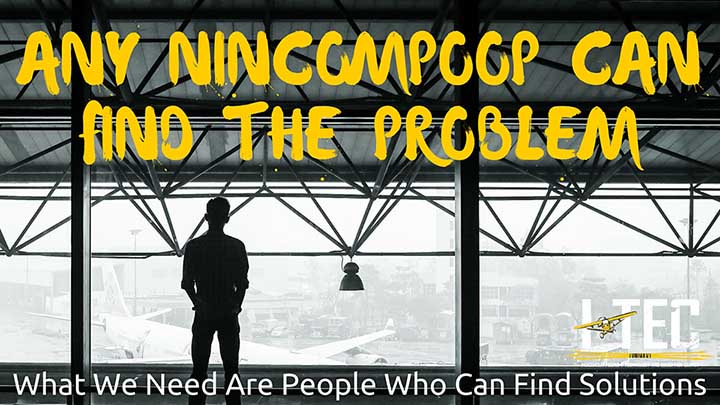Any Nincompoop Can Find the Problem

By Steve Saint
My mom had some great sayings. When I would complain about something, she would say, "Any nincompoop can find the problem, what we need are people who can find solutions."
If you have been interested in missions over the years and feel that you understand what missions is all about, the following observations may not agree with your perspective. With that caveat, please read on and think about the message.
When people from one place go to another place to help the native people, we call that missions. But what if the "Missionaries" go and do something for the native people that the native people are capable of doing themselves? Or, what if the "Missionaries" go and do for those indigenous people something that the indigenous people really need to learn to do for themselves?
That creates a huge problem in missions DEPENDENCY.
In Ecuador, when I was a boy, many of my classmates were in Ecuador because their fathers were assigned to the U.S. military mission to Ecuador. That's right, Christians are not the only ones who send "missionaries".
The father of one of my good high school friends was with the U.S. Air Force mission in Ecuador. Besides being a flight instructor, he was also a wanna-be archaeologist. The only thing I ever remember him talking about was his hobby of studying the Inca ruins that he had visited all over Ecuador. When I asked him what he did for the Ecuadorian Air Force, he made it clear that Ecuador didn't need flight instruction. The Ecuadorians already knew how to fly. He said the only reason that Ecuador wanted help from the U.S. Air Force was that they wanted U.S. funds.
Though I was just a boy, it seemed to me to be very wasteful for the U.S. Air Force to spend millions of dollars a year supporting a large staff of people who apparently weren't needed or wanted. As I got older, however, I realized that my friend's dad and his colleagues could have done something much worse than just spending their time pursuing hobbies like archaeology. They could have spent their time flying the Ecuadorian Air Force planes that we had given them, instead of allowing the Ecuadorians to gain experience flying them themselves. That way the Ecuadorian Air Force would have always been dependent on the U.S. government to defend their country.
I am not really talking about whether or not it is wasteful for the U.S. Military to send "missionaries" to other countries. Just imagine, if you will, the similarities between the situation I have just described and North American Churches sending thousands of short-term "mission" groups to other countries to build, maintain, and paint buildings for indigenous people all over the world. Local people who are not only capable but would love to build their own buildings if somebody would just give them materials. But that would just be another form of dependency. What most of them really need are jobs so that they can buy their own materials to build their own houses, schools, and churches. This way indigenous people won't be perpetually dependent on the North American Church as a growing number of them are today.
This article was originally published in the August 2014 ITEC Newsletter.
Give Where Needed Most

